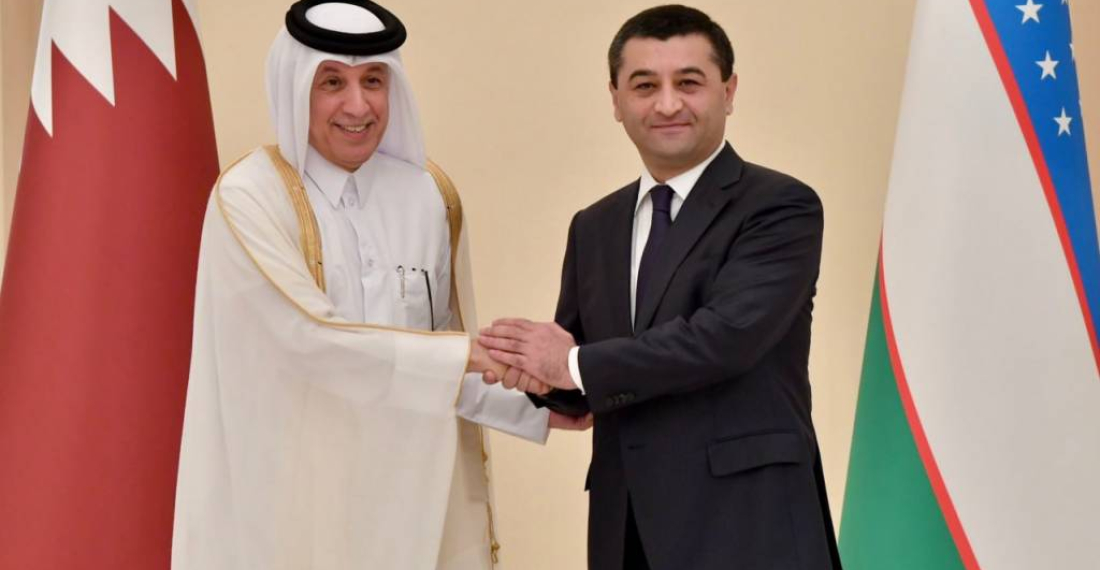Uzbekistan and Qatar have expanded their bilateral relations after a meeting of their foreign ministers in the Uzbek capital Tashkent on Sunday (7 May).
Bakhtiyor Saidov and Soltan bin Saad Al-Muraikhi "discussed dynamic Uzbekistan – Qatar relations, the implementation of joint programs, prospects for intensifying political dialogue, trade and investment, cultural, and people-to-people ties", according to a statement released by the Uzbek Foreign Ministry.
"They also exchanged views on the international and regional agenda, including the current situation in Afghanistan," the statement added.
Qatari embassy opened in Tashkent
The same day, an event was held marking the opening of the Qatari embassy in Tashkent, attended by representatives of the two countries, diplomatic corps, the media and the public.
Speaking at the event, the Foreign Minister Saidov underscored that "Uzbekistan considers Qatar as an important, reliable and promising partner in the Arab world", according to a press release.
"He noted that the diplomatic mission of Qatar in our country will open a new page in the history of bilateral relations, contributing to their enrichment in all spheres."
The meeting between the two foreign ministers comes as Uzbekistan and Central Asia in general seek to develop bilateral relations with partners in the Middle East, as well as Europe and China.
On 8 February Uzbekistan and Slovenia signed an "Agreement on Economic Cooperation", about which you can read more here.







